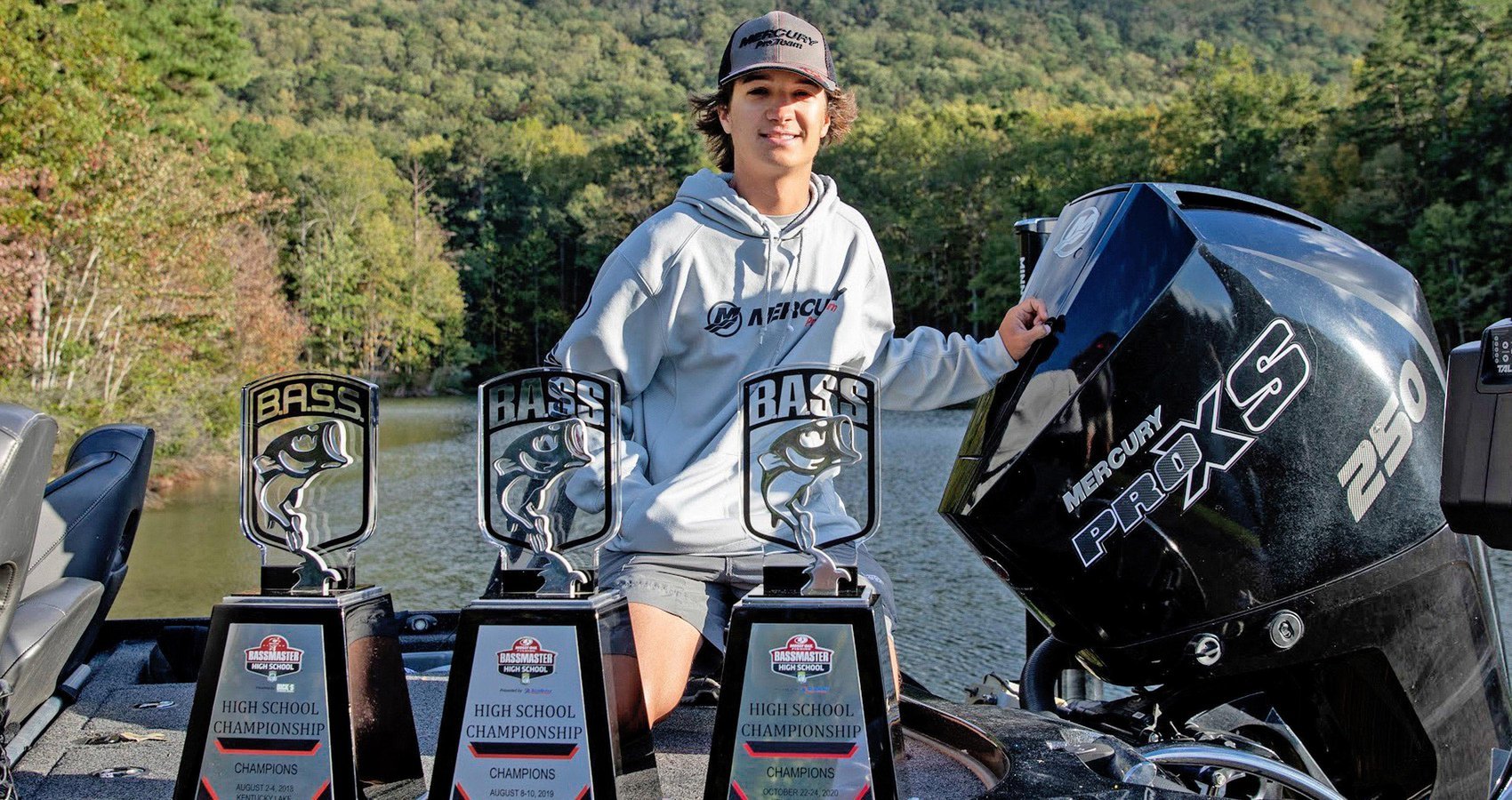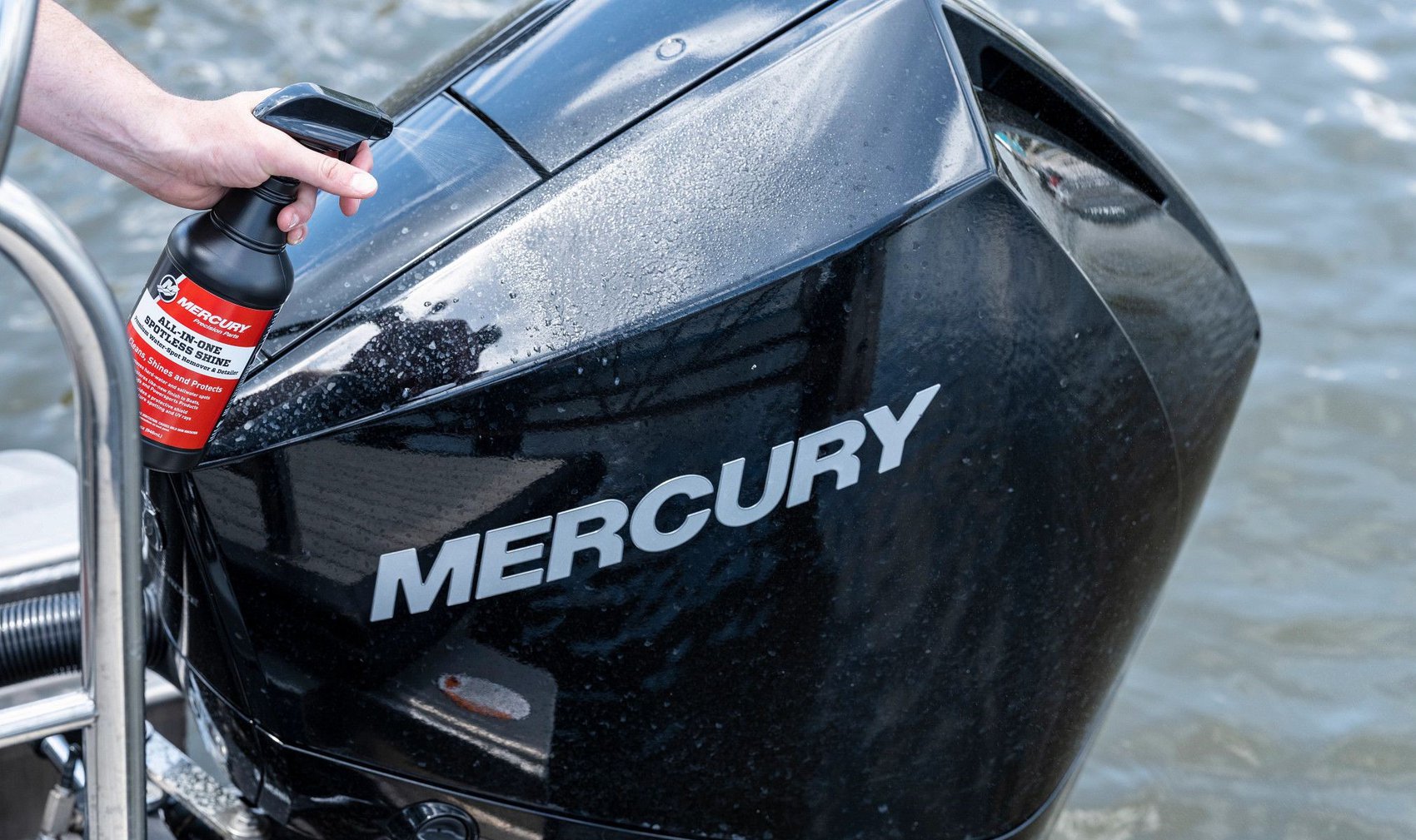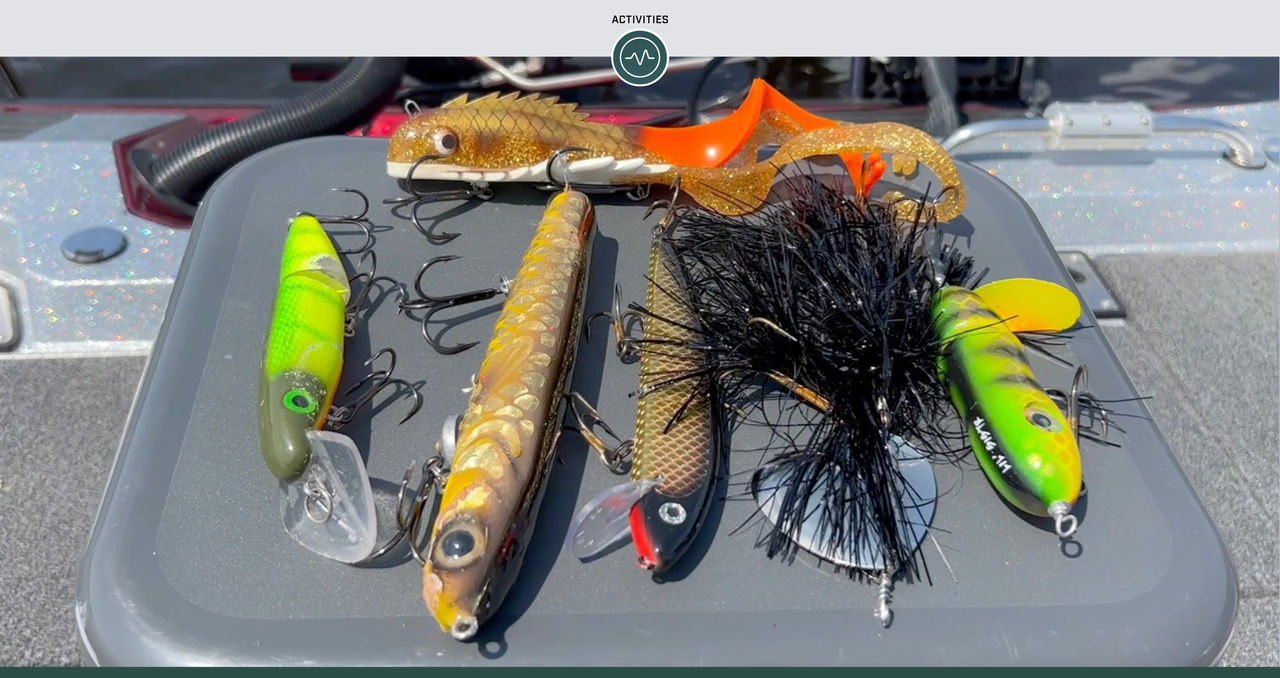Big fish require specialized tackle, and muskies are certainly big fish.
While you can land muskies on any tackle and lures, your odds go up exponentially when using equipment designed for these apex predators. Here are the essentials recommended by Mercury Pro Team member Jim Saric, host of “The Musky Hunter” TV show.
Musky Rods
Start with an 8- to 9-foot, heavy-action rod. This will give you leverage to launch lures weighing nearly a pound, help with handling the hard pull when bringing in big baits and make it easier to effectively execute figure 8s by the boat.
Musky Reels
For reels, you’ll want something the next size or two up from your “standard” baitcasting reel popular among bass anglers – usually a size 300 or 400 reel is just right. These beefier reels will have bigger, stronger gears to withstand the punishment of big lures. Saric recommends a 5.1:1 to 6.1:1 gear ratio to help with cranking in hard-pulling lures.
Musky Line and Leaders
Spool that reel with 80-pound-test braided line. Are you going to catch an 80-pound musky? No, but that strength is more so if you get a backlash mid-cast, that 10-ounce lure doesn’t snap your line like it’s sewing thread.
Finally, Saric finishes off the tackle with a 130-pound-test fluorocarbon leader. Fluorocarbon is clear, which enhances stealth, and the heavy material is strong enough that a musky and it’s sharp teeth won’t bite through it.
5 Must-Have Musky Lures
Musky lures are definitely unique. Some are bigger than the actual fish that other anglers try to catch. And there are a lot out there. In fact, Saric carries as many as 350 lures in his boat for handling different scenarios. That said, he recommends starting with five key lure types that are true staples.
- Topwater – Anytime fish are in shallow cover or during low-light conditions it’s hard to beat the calling power of a topwater. Plus, the strikes are truly heart-pounding.
- In-line spinner/bucktail – This is the bread-and-butter mainstay of musky fishing for just about any shallow-water situation.
- Minnow baits/jerkbaits – If the fish are tight to cover or just in a funk not wanting to chase, these erratic lures can often present an easy meal muskies can’t pass up.
- Deep-running crankbait – Sometimes, a spinner won’t get down enough to reach those deep rocks, weed cover or breaklines. That’s when a crankbait gets the nod. They’re also ideal for trolling where allowed.
- Large soft plastics – Possibly the most-used lures out there, these massive lures, sometimes weighing a pound or more, are as versatile as they get. Soft plastics can be fished shallow, deep and everywhere in between.
Top Lure Colors for Musky Fishing
Saric recommends black and natural forage-imitating colors for musky lures. Look for patterns that mimic a cisco, perch, walleye or other big prey. Muskies also love bright orange and chartreuse colors some days, so have some handy.
Musky Nets, Tools and Equipment
Hooking a musky is one thing. Landing it and getting a picture is another.
To make that happen, you want a massive net to not only scoop hooked fish but also to act as an in-water livewell. Keep the musky in the net with the bag in the water while unhooking the fish, which lets the fish recoup from the fight.
Long-nose pliers are definitely handy here, too, as they keep your hands away from a musky’s razor teeth and the big hooks.
And bring along a measuring tape or bump board to get an accurate length. These are big fish, and it’s easy to think a 38-inch fish is a 45-inch fish, or a 45-incher is a 60-inch world record.
Get Supplied, Then Get Out There
Musky fishing is a lifetime pursuit. If you “get bit” by the “musky bug,” you’ll have plenty of time to collect tackle and explore new ways to fish for them. All that gear can get expensive, especially if you dive into custom tackle, but you don’t need to price yourself out of the game just to get started. Acquire this basic starter kit and then invest in time on the water. That, after all, is what really makes a musky angler successful.
For more musky fishing advice from Jim Saric, check out muskyhuntertv.com.




